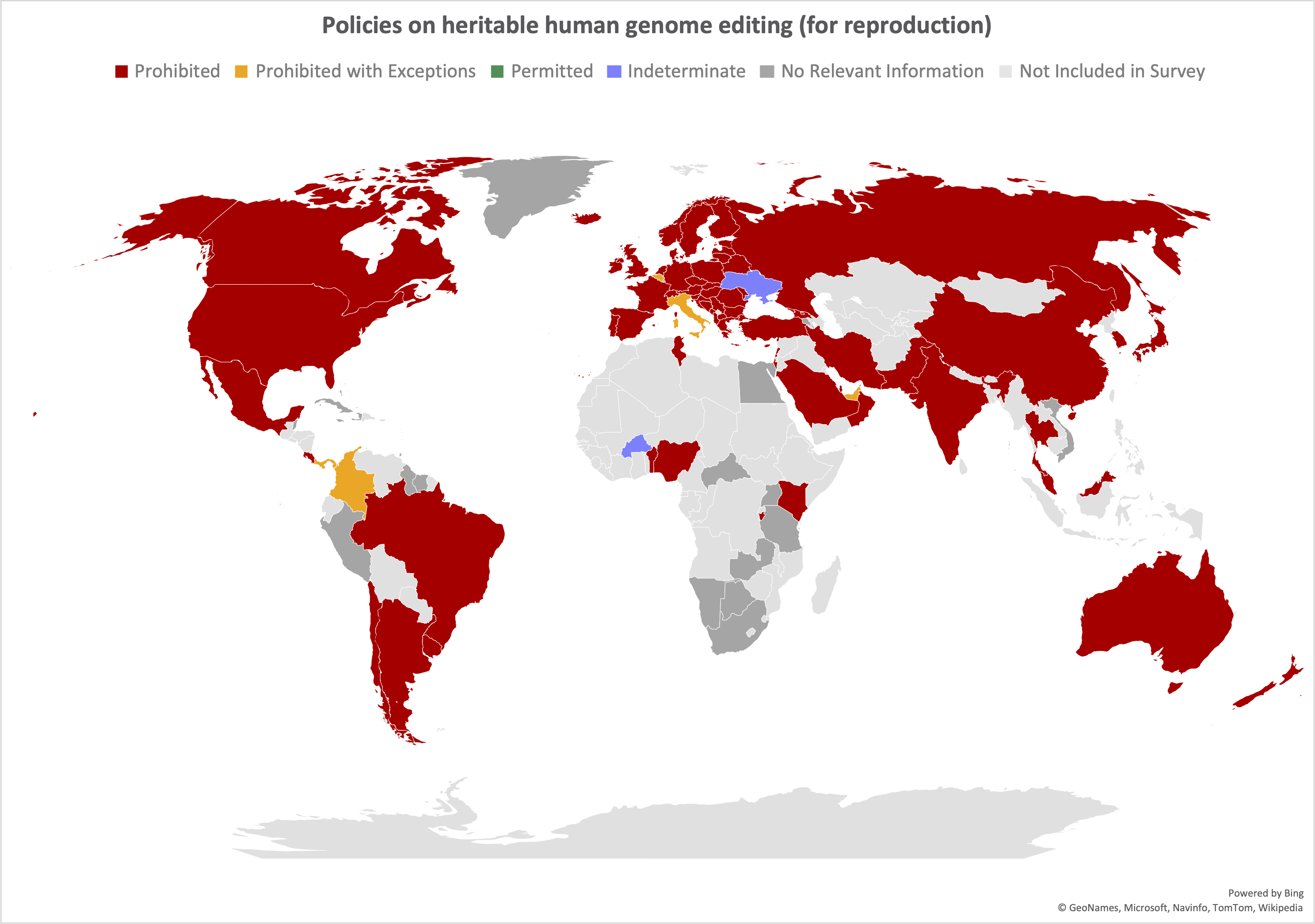Human Germline and Heritable Genome Editing: The Global Policy Landscape
By Françoise Baylis, Marcy Darnovsky, Katie Hasson, and Timothy M. Krahn,
The CRISPR Journal
| 10. 20. 2020
Abstract
Discussions and debates about the governance of human germline and heritable genome editing should be informed by a clear and accurate understanding of the global policy landscape. This policy survey of 106 countries yields significant new data. A large majority of countries (96 out of 106) surveyed have policy documents—legislation, regulations, guidelines, codes, and international treaties—relevant to the use of genome editing to modify early-stage human embryos, gametes, or their precursor cells. Most of these 96 countries do not have policies that specifically address the use of genetically modified in vitro embryos in laboratory research (germline genome editing); of those that do, 23 prohibit this research and 11 explicitly permit it. Seventy-five of the 96 countries prohibit the use of genetically modified in vitro embryos to initiate a pregnancy (heritable genome editing). Five of these 75 countries provide exceptions to their prohibitions. No country explicitly permits heritable human genome editing. These data contrast markedly with previously reported findings.
Introduction
Development of the CRISPR genome editing technology in 2012–131,2 intensified the decades-long controversy on the likely social...
Related Articles
By David Jensen, California Stem Cell Report | 02.10.2026
Touchy issues involving accusations that California’s $12 billion gene and stem cell research agency is pushing aside “good science” in favor of new priorities and preferences will be aired again in late March at a public meeting in Sacramento.
The...
By Alex Polyakov, The Conversation | 02.09.2026
Prospective parents are being marketed genetic tests that claim to predict which IVF embryo will grow into the tallest, smartest or healthiest child.
But these tests cannot deliver what they promise. The benefits are likely minimal, while the risks to...
By Mike McIntire, The New York Times | 01.24.2026
Genetic researchers were seeking children for an ambitious, federally funded project to track brain development — a study that they told families could yield invaluable discoveries about DNA’s impact on behavior and disease.
They also promised that the children’s sensitive...
By Arthur Lazarus, MedPage Today | 01.23.2026
A growing body of contemporary research and reporting exposes how old ideas can find new life when repurposed within modern systems of medicine, technology, and public policy. Over the last decade, several trends have converged:
- The rise of polygenic scoring...




